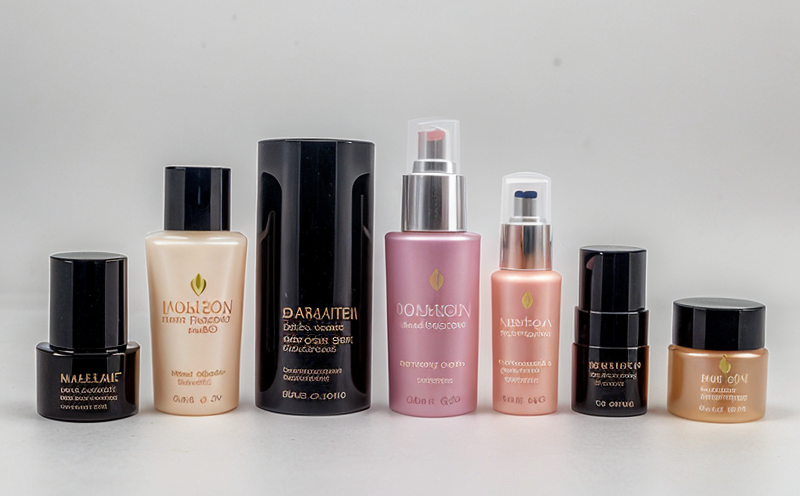In the rapidly evolving world of cosmetics, ensuring that packaging materials are compatible with product contents is paramount. This compatibility extends beyond aesthetics; it encompasses safety, efficacy, and consumer satisfaction. Packaging interaction testing focuses on identifying potential adverse effects due to physical or chemical reactions between the cosmetic product and its container. Our state-of-the-art laboratories specialize in this critical aspect of quality assurance for cosmetics.
Understanding the nature of interactions is essential because even seemingly minor issues can lead to significant problems downstream, from shelf life reduction to health hazards. For instance, metal packaging may react with acidic or alkaline ingredients, leading to corrosion and potentially releasing harmful metals into the product. Similarly, plastic containers might interact with certain solvents or fragrances, causing degradation or leaching of undesirable substances.
Our testing protocols align closely with international standards such as ISO 10993-18 (Biocompatibility Assessment) and ASTM D4236 (Standard Test Method for Evaluating the Potential of Packaging Components to Contaminate Foods, Beverages, or Pharmaceutical Products). These guidelines provide a robust framework for evaluating compatibility and ensuring that packaging does not adversely affect the cosmetic product.
For quality managers and compliance officers, understanding these interactions is crucial. By conducting thorough testing early in the development process, they can mitigate risks associated with non-compliant packaging. This proactive approach ensures that products meet regulatory requirements and maintain consumer trust. In addition, R&D engineers benefit from this service as it informs material selection processes and helps identify optimal packaging solutions.
Our laboratory uses advanced analytical techniques including chromatography (GC-MS), spectroscopy (NMR), and atomic absorption spectrophotometry (AAS) to detect trace elements or compounds that could migrate into the cosmetic product. These methods provide precise measurements, ensuring accurate assessment of compatibility. Furthermore, we employ accelerated aging tests under various conditions such as heat, light, and humidity to simulate real-world storage scenarios.
For procurement teams, packaging compatibility testing offers valuable insights during supplier evaluations. By verifying that suppliers' materials meet our stringent criteria, we ensure consistent quality across different batches of products. This reliability translates into enhanced brand reputation among consumers who value safety and efficacy above all else.
The importance of this service cannot be overstated in today’s highly competitive market where innovation and sustainability are key drivers. By investing in thorough packaging compatibility testing, companies not only protect their reputations but also contribute to a safer environment for both manufacturers and end users.
Quality and Reliability Assurance
The quality of cosmetic products relies heavily on the compatibility between the product itself and its packaging. Ensuring this compatibility involves rigorous testing that covers various aspects such as chemical stability, physical integrity, and aesthetic appeal. At our laboratory, we employ cutting-edge technology to assess these factors comprehensively.
Chemical stability tests aim at detecting any potential degradation or alteration of the cosmetic formula due to interactions with packaging materials. These tests typically involve exposing samples to controlled environments that mimic typical storage conditions over extended periods. The goal is to identify signs of instability such as color changes, shifts in pH levels, or increased viscosity.
Physical integrity checks focus on evaluating how well the container holds its shape and seals securely throughout its intended lifespan. We use specialized equipment like tear testers and seal strength gauges to measure these properties accurately. Ensuring robust physical integrity prevents leaks and spills which could compromise both product quality and consumer experience.
Aesthetics play a crucial role in maintaining brand identity and appeal. Our team conducts visual inspections alongside sensory evaluations conducted by trained panelists who assess attributes like colorfastness, opacity, and shine retention after prolonged exposure to different environments.
Customer Impact and Satisfaction
When it comes to customer satisfaction in the cosmetics industry, packaging plays a pivotal role. A well-designed package not only enhances product presentation but also contributes significantly to user experience. By ensuring that our packaging is compatible with cosmetic products through rigorous testing, we contribute directly towards enhancing this experience.
One key benefit of proper compatibility lies in extended shelf life. Incompatible packages can accelerate product degradation leading to premature spoilage. This reduces customer dissatisfaction and improves overall satisfaction by providing consumers with longer-lasting products that retain their intended qualities better.
The aesthetic appeal of a package is equally important. Consumers often form first impressions based on how the product looks in its container. If there are issues such as discoloration or changes in texture after interaction, it can detract from this positive impression. Our testing ensures that these aspects remain consistent and appealing throughout the product's lifecycle.
Furthermore, compatibility testing helps address safety concerns which build trust among consumers. Knowing that their purchased products undergo stringent quality checks alleviates fears about potential risks associated with packaging materials or migration of harmful substances into the cosmetic formulation.
International Acceptance and Recognition
The cosmetics industry operates on a global stage, and ensuring compatibility between packaging and products is crucial for international acceptance. Regulatory bodies across different countries have stringent requirements regarding material safety and compatibility which must be adhered to in order to gain market access.
Our laboratory’s compliance with international standards such as ISO 10993-18, ASTM D4236, and others demonstrates our commitment to meeting these global expectations. These standards are recognized worldwide for their rigorous protocols designed specifically for evaluating potential interactions between packaging components and contents.
By adhering closely to these guidelines during testing processes, we provide assurance that the packaged cosmetic products meet not only local but also international regulatory requirements. This approach facilitates smoother entry into foreign markets without facing undue delays or rejections based on compliance issues.
The recognition received from participating in global conferences and publications further reinforces our credibility as a leading provider of packaging compatibility testing services within the cosmetics sector. Our expertise is acknowledged by industry professionals who seek out our assistance to ensure their products meet high standards of quality and safety.





